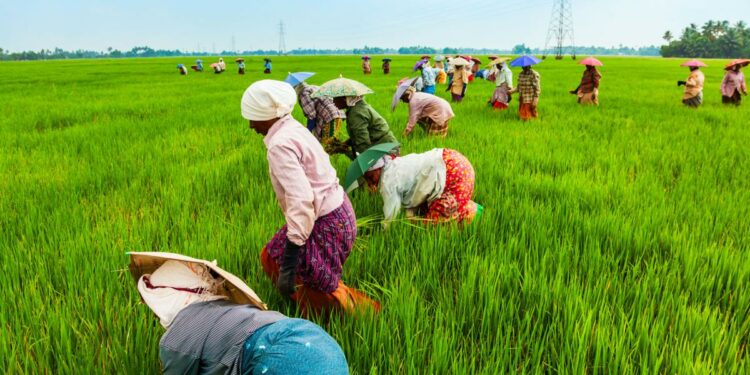Ghana Implements Grain Export Ban to Prevent Drought-Induced Food Shortage
Ghana is implementing a ban on the export of key grains, including rice, corn, and soy, as it seeks to avert a potential drought-induced food shortage.
The decision, announced by Agriculture Minister Bryan Acheampong, follows two months of drought and near-drought conditions that have severely impacted the northern regions, responsible for approximately 62% of the country’s grain production.
The Agric Minister warned of a significant shortfall in grain availability, with 1.8 million hectares of land at risk and half of that area already affected by the adverse weather conditions.
“Without any interventions, this could lead to a nationwide food shortage,” he cautioned.
Ghana’s move to restrict grain exports mirrors similar actions by other West African nations, such as Nigeria and Ivory Coast, which have taken steps to protect their food security amid regional climate challenges.
This comes in the wake of severe drought conditions in Southern Africa, exacerbated by the El Niño weather phenomenon, which devastated crops earlier this year.
To mitigate the anticipated grain shortage, Ghana plans to raise $500 million, including approximately $155 million from the World Bank and other development partners, according to Finance Minister Mohammed Amin Adam.
These funds will be used to compensate affected farmers, with payments of 1,000 cedis ($64) per hectare, and to import grain to cover the domestic shortfall.
However, Finance Minister Amin Adam noted that these grain imports could further weaken the Ghanaian cedi and exacerbate food inflation, with the country’s annual inflation rate already exceeding 20%.
The government’s efforts to ban the exports of rice, corn, and soy, mobilize funds to support farmers in the drought-affected regions of the country, and import grain to cover possible domestic shortfall, underscore the severity of the drought’s impact and the urgent need to stabilize the nation’s food supply.
With Files from Bloomberg…







